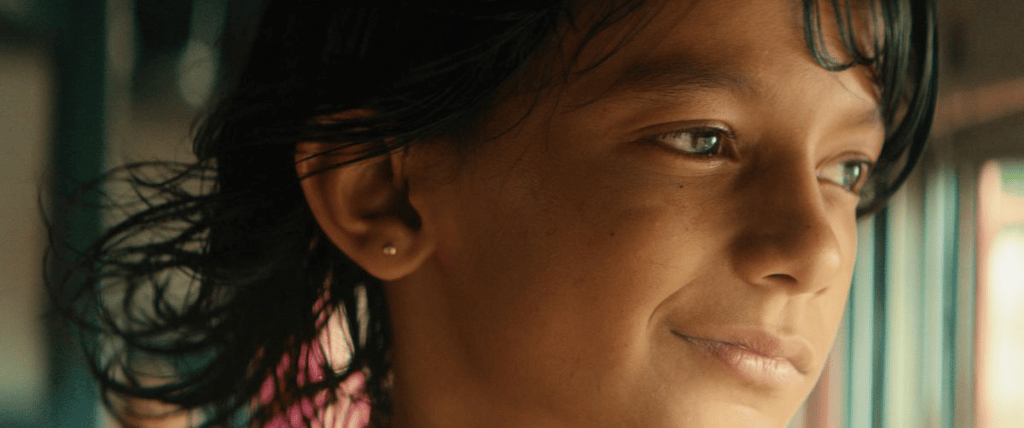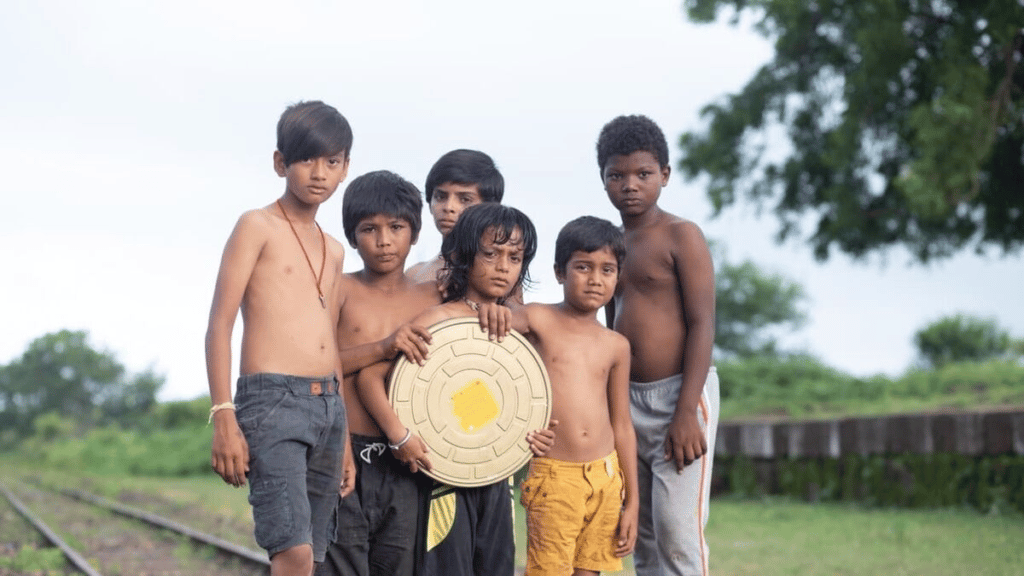Cast: Bhavin Rabari, Bhavesh Shrimali, Richa Meena, Dipen Raval
Director: Pan Nalin
Chhello Show (or The Last Film Show in English) is India’s official entry to the 95th Academy Awards.
The film takes us to the world of Samay (Bhavin Rabari), a young boy from Chalala village in Gujarat, who lives with his father (Dipen Raval), mother (Richa Meena) and younger sister. One day, his father takes the family to a movie called ‘Goddess Mahakali’. The year is 2010 when movies were still shot using film cameras and played through a film projector. The light from the projector, and the experience of watching the film give birth to a germ of curiosity in the mind of our young protagonist. After some very amusing events, he befriends a film projectionist named Fazal (Bhavesh Shrimali), and his dreams begin to take shape in him.

Samay’s curiosity about the films takes him on a quest to ‘capture’ light. After stealing a piece of film from the theatre, Samay converts a train coach into a makeshift camera obscura to project film from a tiny hole in the window. But now, he is baffled by the inverted image caused by the rectilinear propagation of light, and he strives to find a solution. Likewise, with the help of a few more friends, Samay learns and figures out, hands-on, every step that is required to project a film reel. Simultaneously, his relationship with Fazal — a beautifully woven one — takes its course, and with it, we witness the evolution of the cinema theatres, and the bitter truth behind the digitalised world of cinema. In fact, a brilliant sequence that comes when Samay learns the mechanics of frame rate makes us wonder if all digitally shot movies are artificial in their “lack of darkness.”
From Samay’s very name to the background of the family and the history of events that led to the father opening a tea shop, everything is told at its own pace and most of these details eventually prove vital in the story’s progression. Pan, with cinematographer Swapnil S. Sonawane, tells a lot through beautiful frames and carefully choreographed frames. Interestingly, from the beginning and until Samay discovers cinema, the frames look soft as if the focus was meant to land just a millimetre away from the subject. It evokes the haziness with which we remember our childhood as if to say that Samay’s world grew brighter and sharper only after he discovered his passion for cinema. This smoothness in the earlier frames is all the more apparent in the initial close-ups of Samay.

There’s another bigger narrative that Pan carefully weaves right from the beginning, and that speaks of the democratic nature of stories and how ironically a society that innately likes to tell stories looks down upon cinema.
Samay and his friends are obsessed with weaving stories, even if it means collecting empty matchbox boxes and telling a story with the figures on them. It is this wide-eyed innocence and imagination that drives everything forward for Samay and his friends. Right from the beginning, we are also made aware of the socio-economic reasons that elevate cinema into this unattainable, unrealistic dream for the masses. This commentary begins in the scene when his father takes them to the first movie. “You hate movies. Why are you taking us to one, then?” asks Samay, to which the father answers that it is okay since it’s a religious movie. “But this is your first and your last show,” he asserts, minutes before telling his son that filmmaking aspirations will tarnish the image of conservatives like himself in society. In this short scene, the film speaks a lot about how we look at cinema and the film industry.

Earnest performances by Bhavin, Bhavesh, Richa, and Dipen are also big highlights of the film, but Chhello Show‘s biggest seduction is in how it employs these abovementioned layers in the narrative, telling larger themes that are at play, and still making it a personal story about a boy chasing dreams of cinema.
Chhello Show deserves a watch, irrespective of how it fares at the Oscars.




